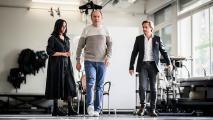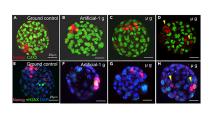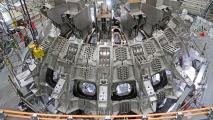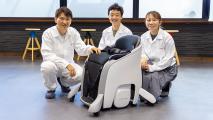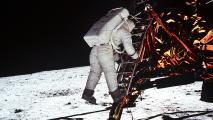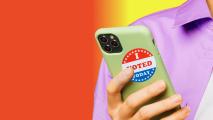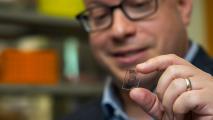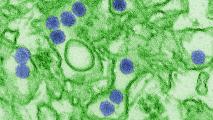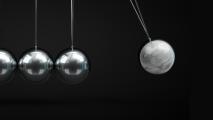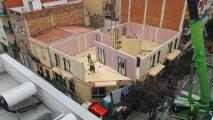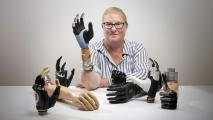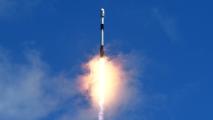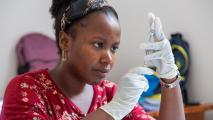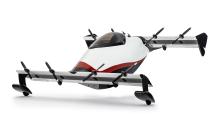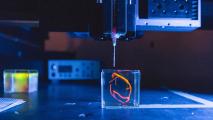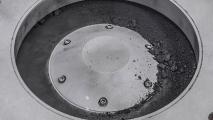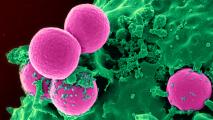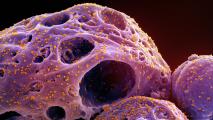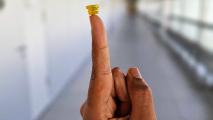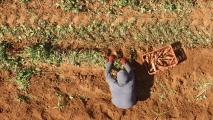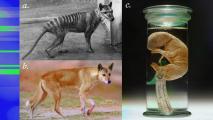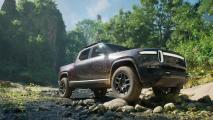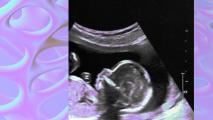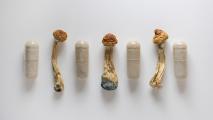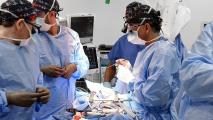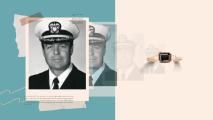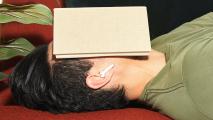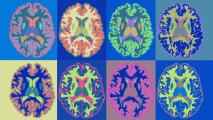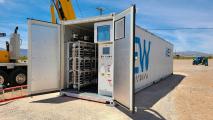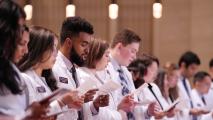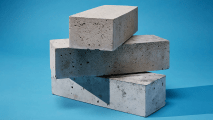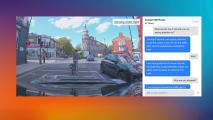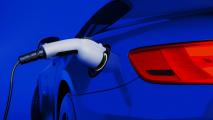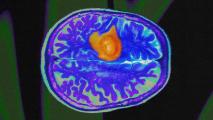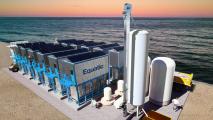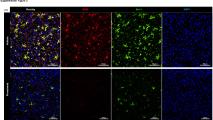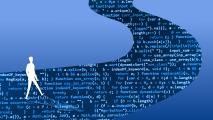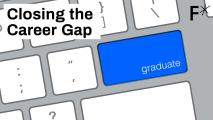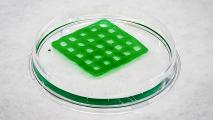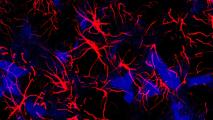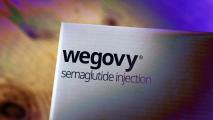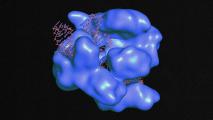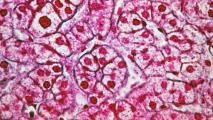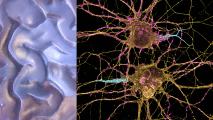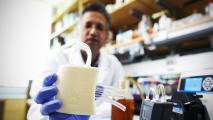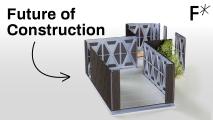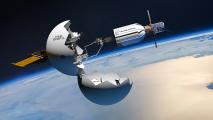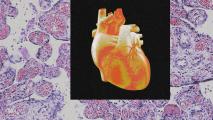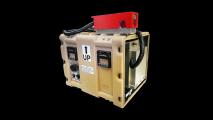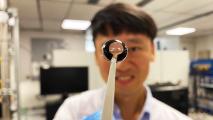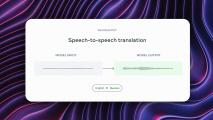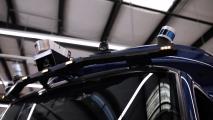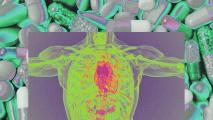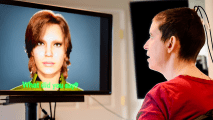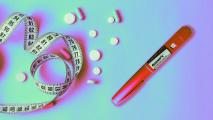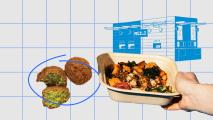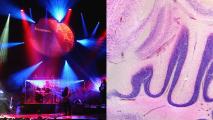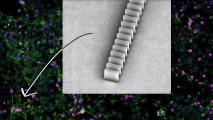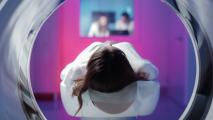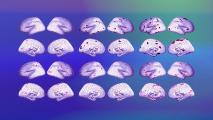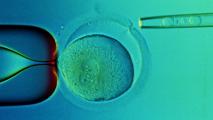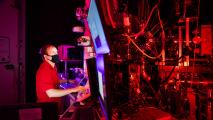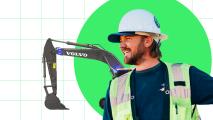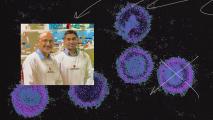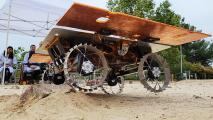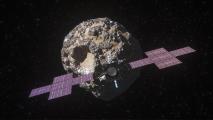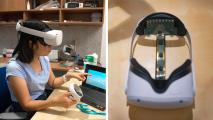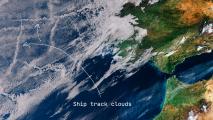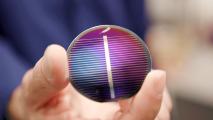Status: Featured
To promote content in various display modules across the site
T-Minus: NASA’s surprise asteroid, China’s reusable rocket, and more
Freethink's weekly countdown of the biggest space news, featuring a surprising asteroid discovery, a new reusable rocket, and more.
Spinal implant lets man with Parkinson’s walk again
An experimental spinal implant has given a French man with advanced Parkinson’s disease back his ability to walk.
Memory champion explains how she memorizes 1,080 numbers in 30 minutes
Katie Kermode — a memory athlete with four world records — tells Big Think about her unique spin on an ancient technique to memorize unfathomably long lists of information.
Mouse embryos grown in space for the first time
A mouse experiment on the International Space Station suggests humans might one day be able to reproduce in space.
Japan sets new nuclear fusion record
A massive nuclear fusion experiment just hit a major milestone, potentially putting us a little closer to a future of limitless clean energy.
T-Minus: Stranded space drugs, a new moon lander, and more
Freethink's weekly countdown of the biggest space news, featuring a stranded space factory, Jeff Bezos' new moon lander, and more.
This AI companion could forever change how you feel about tech
Silicon Valley tech startup New Computer has unveiled Dot, an AI companion that could forever change our relationship with tech.
Honda unveils hands-free wheelchair you steer like a Segway
Honda Robotics has unveiled a prototype of the UNI-ONE, a hands-free wheelchair that you steer with your body weight.
NASA spends $50K on liquid metal spacesuit material
NASA-backed engineers are developing a new spacesuit material that will use liquid metals to repel lunar dust on demand.
Debunking the myth of Gen Z “voter apathy” ahead of the 2024 election
In partnership with Skoll Foundation
Gen Z is stereotyped as politically apathetic. These youth action groups are proving that couldn’t be further from the truth.
“Living pharmacies” could mean you never forget to take your meds again
The US government is funding the development of "living pharmacies," implants containing cells that release medications on demand.
T-Minus: SpaceX’s wild pace, a marsquake mystery solved, and more
Freethink's weekly countdown of the biggest space news, featuring SpaceX's launch problem, a marsquake mystery, and more.
Why 20 women were just deliberately exposed to Zika
In a first-of-its-kind human challenge trial, Johns Hopkins University researchers deliberately exposed 20 women to the Zika virus.
For entrepreneurs, product positioning can be even more important than the product itself
In partnership with Million Stories
Here are 3 strategies for smarter product positioning.
MasterClass co-founder explains the secret to standing out in any industry
In partnership with Million Stories
How you position your business is as important as the idea itself. MasterClass co-founder Aaron Rasmussen reveals why.
The faster, cheaper, no-brainer way to replace dirty construction
Startups are using Sims-like software and IKEA-like manufacturing to solve the housing crisis with sustainable construction.
“Hydrogel” drugs could suppress HIV with minimal treatments
An injectable solution that self-assembles into a hydrogel to deliver 6 weeks of anti-ARV drugs could make managing HIV less of a burden.
This bionic hand is fused to a woman’s bones, muscles, and nerves
A new way of merging the body with a bionic hand provided a woman with more control over her prosthetic and less phantom limb pain.
T-Minus Weekly: Psyche launches, NASA unveils asteroid samples, and more
Freethink's weekly countdown of the biggest space news, featuring the launch of the Psyche, the reveal of NASA's asteroid samples, and more.
SpaceX’s Starlink is now available across the entire US
SpaceX's Starlink has expanded its satellite internet coverage to include the entire US and announced an upcoming "Direct to Cell" service.
How I reinvented the future of the art market
In partnership with Million Stories
This first-time entrepreneur didn’t find a gap in the art market — he reinvented it. Here’s how he made it happen.
Why aren’t we moving faster on malaria vaccines?
COVID-19 shots were rolled out within weeks of approval. The malaria jab is being delayed until mid-2024. Why?
You’ll be able to buy this flying car for $190k in 2024 (Updated)
Startup Pivotal has unveiled the Helix eVTOL, a one-seater aircraft it plans to begin selling for $190,000 in 2024.
Stanford plans to put a 3D-printed human heart in a pig by 2028
Using 3D bioprinting, scientists are trying to construct perfect replacements for damaged organs, bones, and tissues.
T-Minus Weekly: A first for Europe, Musk’s Starship update, and more
Freethink's weekly countdown of the biggest developments in space, featuring a first for Europe, Musk’s Starship update, and more.
CRISPR protects 9 out of 10 chickens from bird flu
UK scientists have used CRISPR to create gene-edited chickens that are highly resistant to the avian flu virus.
NASA’s asteroid sample contains an abundance of carbon and water
On October 11, NASA shared its first update on the Bennu asteroid sample brought to Earth by the OSIRIS-REx mission.
How Hawthorne used data-backed personalization to innovate men’s personal care
In partnership with Million Stories
Hawthorne is a premium men’s personal care brand that recommends products to customers based on their needs.
African food is rising in popularity. Here are the chefs, farmers, and businesses making that happen
In partnership with Skoll Foundation
Colonization has pushed African cuisine into the shadows. These chefs, farmers, and business owners are on a mission to put it in the spotlight.
Chipotle’s new robot can make your burrito bowl or salad
Chipotle is testing a new robot that makes burrito bowls and salads under the same table where employees fill orders.
New superbug vaccine turns the immune system into “the Hulk”
A superbug vaccine that temporarily puts the immune system on high alert could reduce the number of hospital-associated infections.
After studying 850 hours of footage, this paper offers 3 rules for a great conversation
Good conversations leave a lasting impression. They are rewarding and enriching. Here's how to have more of them.
Where are the universal coronavirus vaccines?
Universal coronavirus vaccines that protect against all known variants of COVID-19 — and ones that don't exist yet — are closer than ever.
T-Minus Weekly: An astronaut’s return, a Martian dust devil, and more
Freethink's weekly countdown of the biggest developments in space, featuring the return of NASA's Frank Rubio, a dust devil on Mars, and more.
Webb telescope spots strange objects in the Orion Nebula
New James Webb Space Telescope images of the Orion Nebula include more than 100 strange objects that are neither planets nor stars.
Okay, so you’re an artist. How do you make $?
In partnership with Million Stories
With the boom of social media, artists don’t need galleries to survive anymore. Here’s how not to become "the starving artist."
Octopus tentacle-like patch delivers drugs through your cheek
A needle-free drug delivery system inspired by octopus tentacles could one day replace injections for administering biopharmaceuticals.
Africa is 50% hotter than the rest of the world. How farmers are combating rising temperatures
In partnership with Skoll Foundation
Compared to the rest of the world, West Africa is getting hotter faster. Here’s the digital tool that helps farmers secure a higher yield.
CRISPR is helping “de-extinct” the Tasmanian tiger
"De-extinction” researchers believe they might be able resurrect the Tasmanian tiger and restore ecological balance in Australia.
Watch how video games are approaching perfect photorealism
Platforms like Unreal Engine 5 are enabling independent developers to create realistic digital worlds.
Artificial wombs for preemies move closer to human trials
A panel of FDA advisors has met to discuss the development of artificial wombs designed to help extremely premature babies survive.
T-Minus Weekly: NASA’s first asteroid sample, Stoke’s big hop, and more
Freethink's weekly countdown of the biggest developments in space, featuring NASA's first asteroid sample, a Curiosity milestone, and more.
Gene-edited pig heart gives a dying man a second chance at life (Updated)
For the second time ever, a gene-edited pig heart has been transplanted into a person with terminal heart disease.
This startup turns your loved ones’ ashes into lab-grown memorial diamonds
In partnership with Million Stories
Eterneva grows diamonds in the lab and sells them as memorials to people whose loved ones have passed away.
The “opportunity framework” can tell you how successful your business might be
In partnership with Million Stories
The ‘opportunity framework’ will ensure your business is profitable — and meaningful.
AI narrates 5,000 free audiobooks for Project Gutenberg
A new text-to-speech system developed by Microsoft and MIT was used to create nearly 5,000 audiobooks for Project Gutenberg.
New “inverse vaccines” could be key to curing autoimmune disorders
"Inverse vaccines" that teach the immune system to tolerate triggering molecules could be the key to curing autoimmune disorders.
California utility will try to store renewable energy in iron-flow batteries
A California utility company is testing whether iron-flow batteries could be the answer to the renewable energy storage problem.
T-Minus Weekly: Victus Nox, a record-breaking ISS mission, and more
Freethink's weekly countdown of the biggest developments in space, featuring the launch of Victus Nox, a record-breaking mission, and more.
UT med students can now get a dual degree in AI
The University of Texas at San Antonio has launched what it says is the US’s first dual degree in medicine and AI.
New low-carbon cement is stronger than the regular stuff
A low-carbon cement developed by two MIT grads has officially exceeded industry standards for strength, durability, and more.
5 mistakes most startups make when raising capital
In partnership with Million Stories
Blindly approaching investors without having a strategy is a rookie mistake.
3 simple steps to secure venture capital funding
In partnership with Million Stories
Before you pitch, here are 3 simple yet genius tips to raise big funding — from a CEO who knows the game.
Self-driving cars can now tell passengers what they’re thinking
AV startup Wayve has given its self-driving cars the ability to explain their decisions in conversational language.
EV battery material breakthrough could cut charging times to 6 minutes
A new anode material could allow electric vehicle (EV) batteries to hold more energy and charge up faster.
Scientists grow “human-ish” organs in pigs for the first time
Partially human kidneys have been grown in pig embryos, marking the first example of anyone growing solid human organs in another species.
Brain implant lets cancer patients try 20 different drugs at a time
A microdevice that injects up to 20 drugs into gliomas at once could help doctors quickly identify the best treatment for cancer patients.
T-Minus Weekly: The end of O2 on Mars and the week’s other big space stories
Freethink's weekly countdown of the biggest developments in space, featuring the launch of XRISM, the end of MOXIE, and more.
This startup’s tech turns CO2 into seashell dust
UCLA spinout Equatic has developed a carbon removal technology that pulls CO2 from ocean water, generating hydrogen in the process.
Drug for MS may be able to treat Alzheimer’s, too
A drug approved to treat multiple sclerosis reduced neuroinflammation and improved memory in mouse models of Alzheimer’s.
Online trade schools are revolutionizing how tech workers finance their education
In partnership with Million Stories
Tech workers are in high demand, with reports suggesting there could be a global shortage of more than 85 million tech workers by 2030.
You don’t need a degree to make 6 figures. Here’s why.
In partnership with Million Stories
I was out of the workforce for 10 years — and now I make 6 figures. Here’s how I did it in just 10 months.
This “living material” self-destructs and cleans up polluted water
A 3D-printed “living material” packed with genetically engineered bacteria could be an eco-friendly way to clean up polluted water.
Scientists discover a new kind of brain cell
A newly discovered brain cell that appears to be a hybrid of the two other primary types could shake up the world of neuroscience.
Popular weight-loss drugs show promise as addiction treatments
New trials will test the ability of GLP-1 agonists, a popular class of weight-loss drugs, to help people beat addictions to drugs and alcohol.
At least 5 people have been cured of HIV. Is the AIDS pandemic ending?
A handful of people have already been functionally cured of HIV — and new, universal cures are just on the horizon.
New treatment slashes obesity in mice eating fatty, sugary diet
A new obesity treatment developed at UMass triggered weight loss in mice even as they continued to eat a diet high in fat and sugar.
Transplants of lab-grown brain cells reduce Parkinson’s symptoms
Transplants of lab-grown dopamine neurons reduced the amount of time people experienced Parkinson’s symptoms in a small trial.
Artificial kidney aces test in pigs
An artificial kidney prototype just aced a pig trial, bringing it closer to human trials — and a step closer to ending the need for dialysis.
This prefabricated construction company aims to make buying a home as simple as buying a car
In partnership with Million Stories
Cover is a Los Angeles-based prefabricated home company that builds housing components in an off-site facility and then assembles them at the house site.
These factory-home builders are closing the housing gap
In partnership with Million Stories
How we build homes is changing. So are construction jobs — and it could solve the labor shortage.
NASA is spending $850,000 to make a bag for space trash
TransAstra has secured a $850,000 NASA contract to build an inflatable bag for capturing space trash, which could then be recycled in orbit.
Potential heart attack treatment discovered in human placentas
Placental cells known to home in on and repair damaged heart cells in mice have been discovered in humans, too.
The US military just got its hands on a mini laser weapon
Laser weapons could shape the future of warfare — and the US military just got a “mini” version of the tech.
New battery charged by tears will power smart contact lenses
An ultra-thin, flexible battery could lead to safe, comfortable smart contact lenses partially powered by our tears.
Meta’s first-of-its-kind AI can translate between any of 100 languages
Meta’s SeamlessM4T AI puts it a step closer to creating a universal translator that eliminates the language barrier for good.
Autonomous trucks may soon take over the most undesirable job in long-hauling
In partnership with Million Stories
Embark is one of a handful of companies aiming to automate the long-haul trucking industry, which has logged severe labor shortages in recent years.
I pilot a self-driving truck. Here’s why we need more.
In partnership with Million Stories
96% of road accidents are caused by human error. Could self-driving semi trucks be a safer option?
Weight-loss drug improves heart failure symptoms, too
Novo Nordisk’s popular weight-loss drug semaglutide (Wegovy) improved heart failure symptoms in a trial of more than 500 people.
Paralyzed woman able to speak again, thanks to brain-avatar interface
Speech BCIs that use brain implants and algorithms to translate brain signals into text are changing the lives of people with paralysis.
New obesity treatments could reshape the world
New obesity treatments, including GLP-1 agonists and gene therapies, could make it easier for people to lose weight and keep it off.
“Blended-wing” aircraft design promises 50% cut in fuel
Blended-wing-body aircraft aren't new, but the sector might soon start taking off for the first time.
This restaurant is run entirely by robots
In partnership with Million Stories
These robots can chop, cook, and serve — and they could revolutionize the food industry.
A Pink Floyd song was reconstructed from listeners’ brain waves
Training an AI to reconstruct a song from listeners’ brain activity revealed insights about the brain that could lead to better speech BCIs.
“Light sculpting” chip can rapidly test for thousands of diseases
Stanford researchers have developed a new type of molecular test that works without a cumbersome amplification step.
Brain scans reveal the mystery of “hidden consciousness”
Newly identified patterns of injury linked to “hidden consciousness” could lead to better outcomes for people in comas or vegetative states.
Hackers get AI to share credit card info and endorse hate speech
At DEFCON 2023, ethical hackers targeted generative AIs by OpenAI, Google, and other tech leaders to aid responsible AI development.
Mental illnesses affect brain structure, but in surprisingly different ways
A new brain mapping study identified commonalities in the brains of people with mental illnesses, and it could lead to better treatments.
Replacing the immune system can boost cancer survival
Mixing stem cell transplantation with immunotherapy significantly improves survival rates for a deadly childhood cancer.
Scientists see metal heal itself for the first time
The first example of metal healing itself, repairing tiny cracks caused by metal fatigue, could lead to an engineering revolution.
Brain stimulation helps people with Parkinson’s walk
A noninvasive form of brain stimulation developed by Japanese researchers improved the symptoms of Parkinsonian gait in a small trial.
These robot excavators are making workers more money
In partnership with Million Stories
With the rise of AI, more people are afraid of robots taking their jobs than ever before. But in this industry, AI is actually creating jobs — and helping workers make more money.
Vaccine for common virus could prevent MS
An experimental vaccine designed to prevent an EBV infection might also prevent cancer and multiple sclerosis.
NASA is sending a team of autonomous robots to the moon
NASA is sending three autonomous mobile robots to the moon where they’ll have to work as a team under challenging conditions.
NASA mission to a $10,000-quadrillion asteroid is two months from launch
NASA hopes to get a glimpse at Earth's core by sending a spacecraft to 16 Psyche, an metal-rich asteroid 280 million miles away.
Scientists tweak Meta VR headset to measure brain activity
A modified VR headset that records brain activity reveals how being immersed in VR impacts people on a neurological level.
Reduction in air pollution may be accelerating ocean warming
Recent ocean warming may be the result of IMO 2020, a rule that dramatically reduced air pollution from the shipping industry.
How mechanics can prepare for the electric revolution
In partnership with Million Stories
Electric vehicles are selling at record highs. Here’s how mechanics are adapting.
NASA gives Blue Origin $35 million to turn moon dust into solar cells
A technology that autonomously fabricates solar cells out of lunar regolith just earned Blue Origin a $35 million NASA contract.

